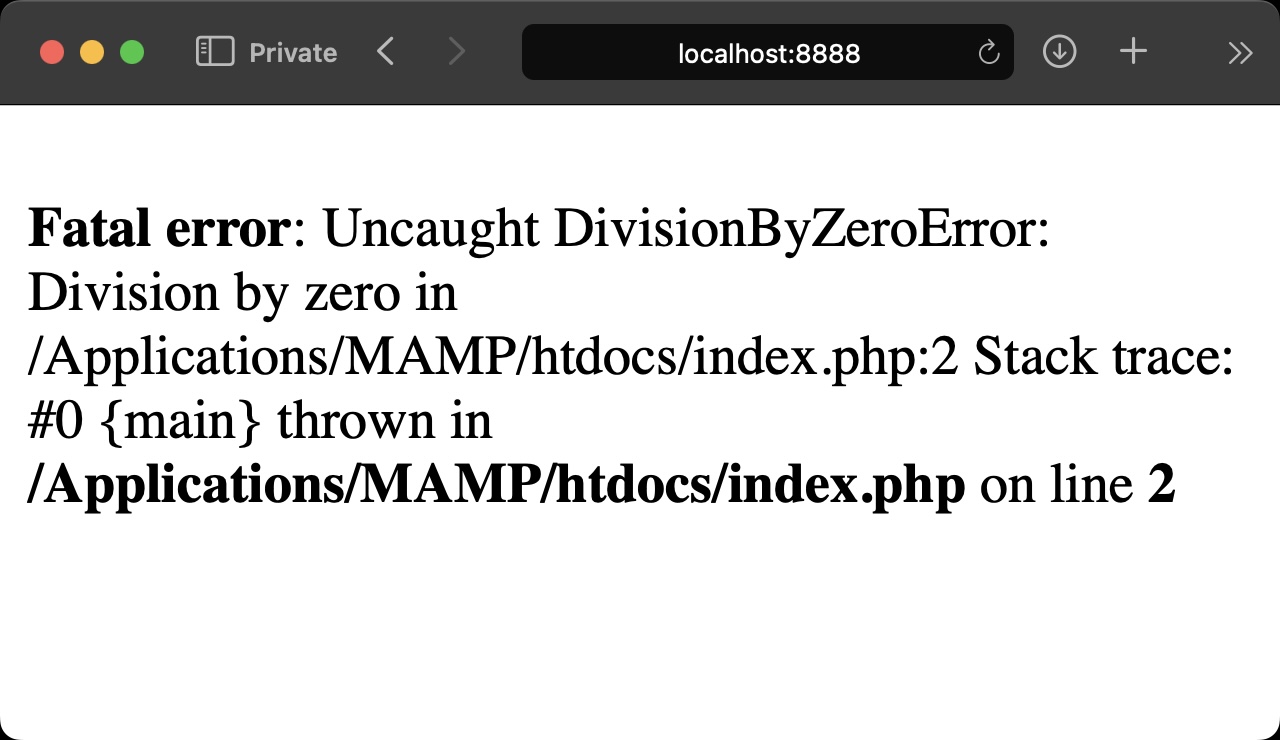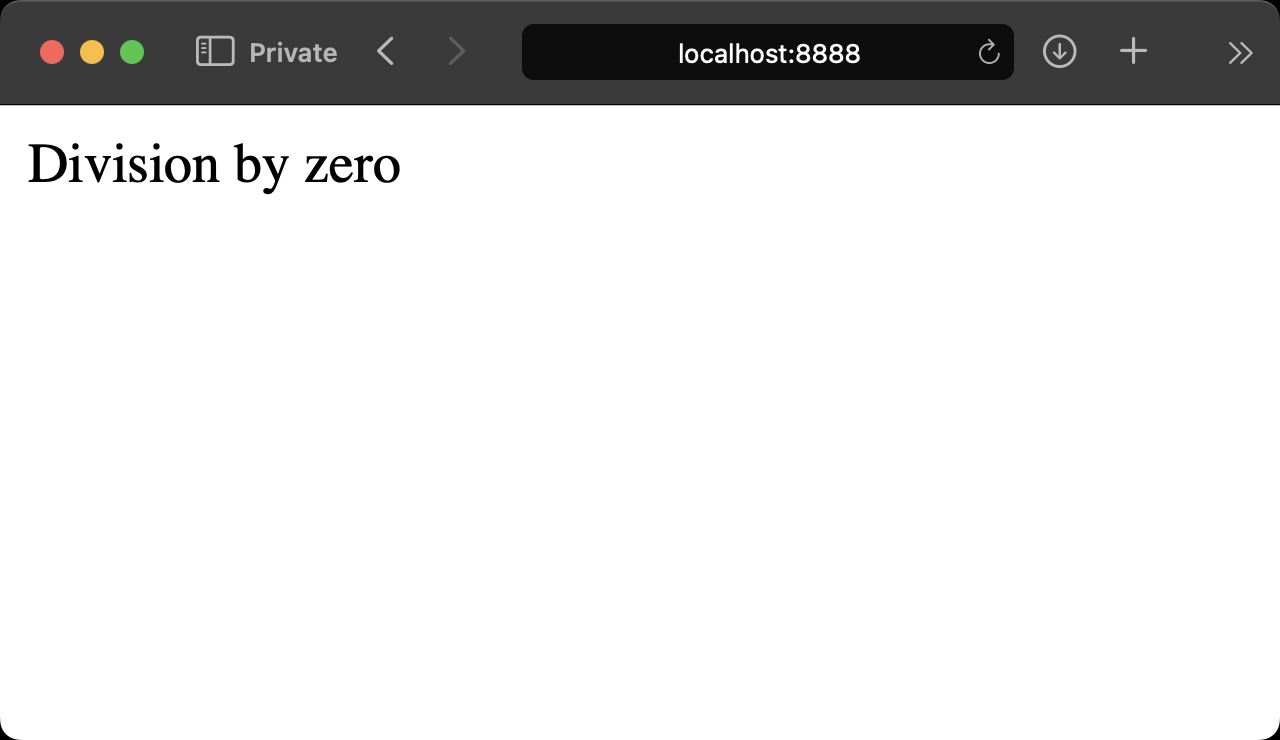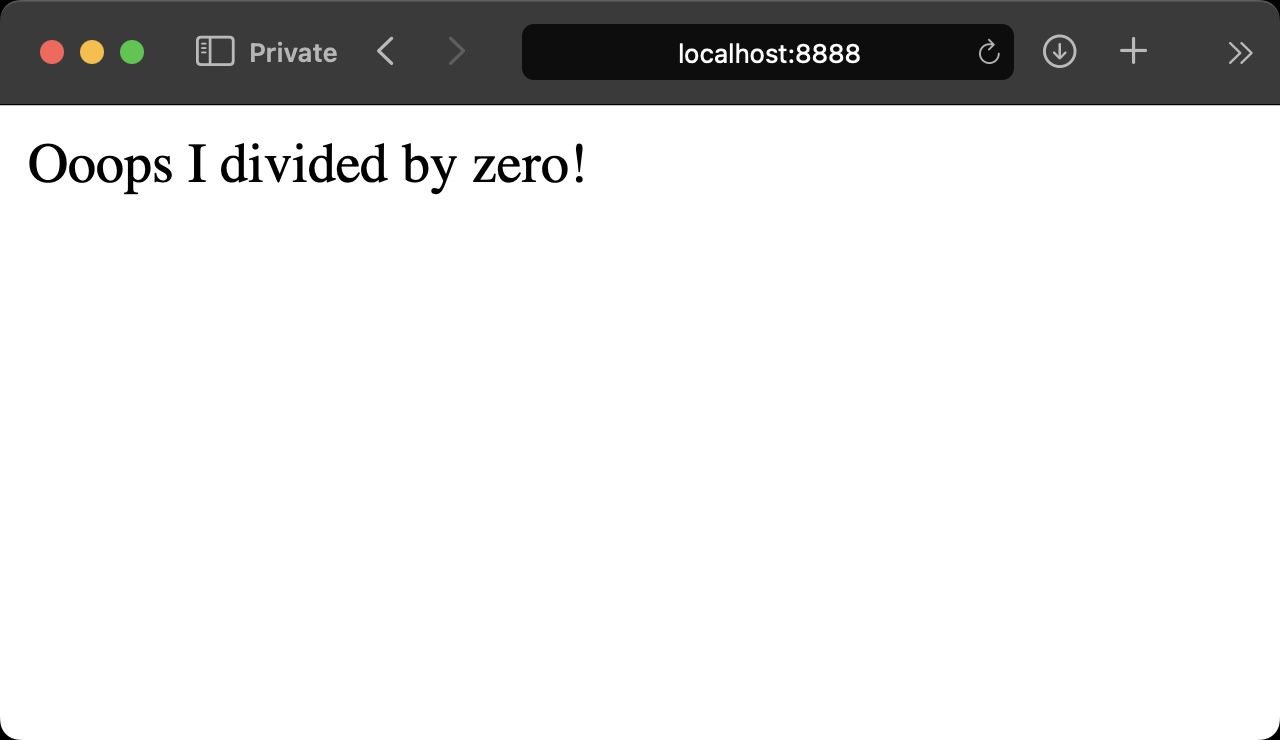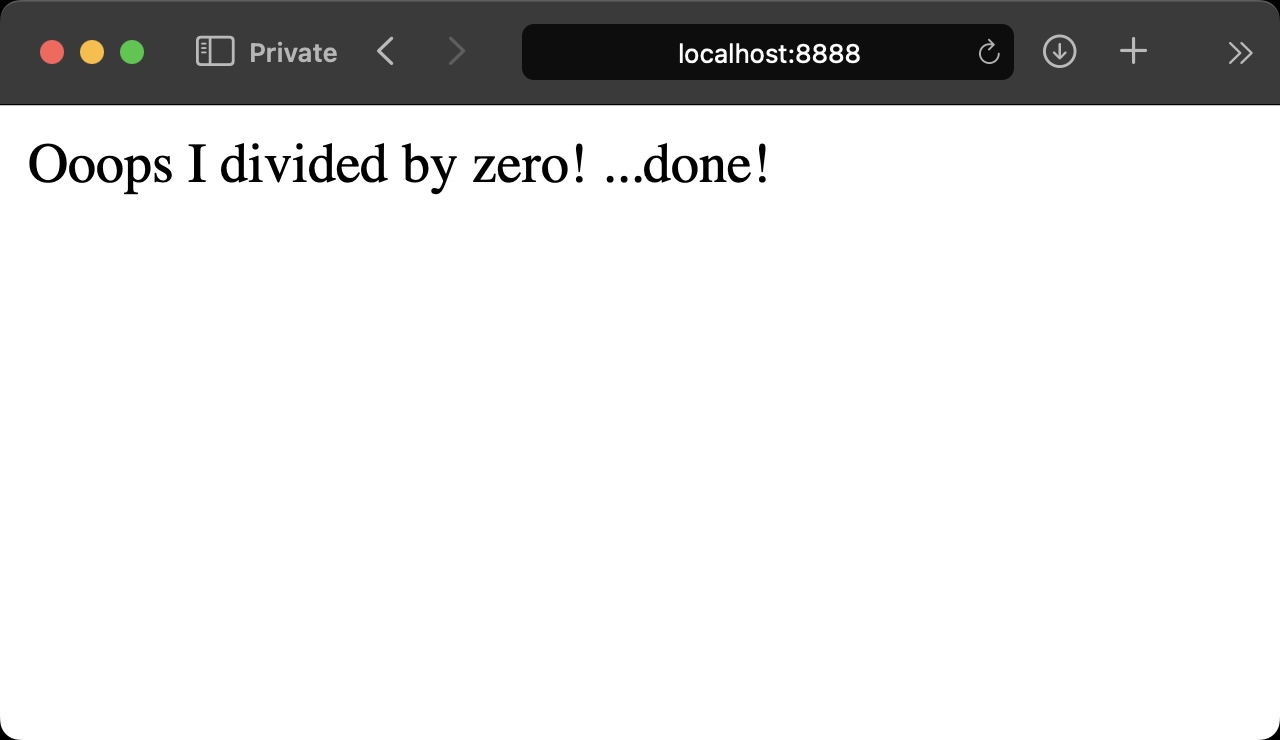How to use exceptions in PHP
Sometimes errors are unavoidable.
Something completely unpredictable happens.
But many times, we can think ahead, and write code that can intercept an error, and do something sensible when this happens. Like showing a useful error message to the user, or try a workaround.
We do so using exceptions.
Exceptions are used to make us, developers, aware of a problem.
We wrap some code that can potentially raise an exception into a try block, and we have a catch block right after that. That catch block will be executed if there’s an exception in the try block:
try {
//do something
} catch (Throwable $e) {
//we can do something here if an exception happens
}Notice that we have an Exception object $e being passed to the catch block, and we can inspect that object to get more information about the exception, like this:
try {
//do something
} catch (Throwable $e) {
echo $e->getMessage();
}Let’s do an example.
For example by mistake I divide a number by zero:
echo 1 / 0;This will trigger a fatal error and the program is halted on that line:

Wrapping the operation in a try block and printing the error message in the catch block, the program ends successfully, telling me the problem:
try {
echo 1 / 0;
} catch (Throwable $e) {
echo $e->getMessage();
}
Of course this is a simple example but you can see the benefit: I can intercept the issue.
Each exception has a different class. For example we can catch this as DivisionByZeroError and this lets me filter the possible problems and handle them differently.
I can have a catch-all for any throwable error at the end, like this:
try {
echo 1 / 0;
} catch (DivisionByZeroError $e) {
echo 'Ooops I divided by zero!';
} catch (Throwable $e) {
echo $e->getMessage();
}
And I can also append a finally {} block at the end of this try/catch structure to execute some code after the code is either executed successfully without problems, or there was a catch:
try {
echo 1 / 0;
} catch (DivisionByZeroError $e) {
echo 'Ooops I divided by zero!';
} catch (Throwable $e) {
echo $e->getMessage();
} finally {
echo ' ...done!';
}
You can use the built-in exceptions provided by PHP but you can also create your own exceptions.
download all my books for free
- javascript handbook
- typescript handbook
- css handbook
- node.js handbook
- astro handbook
- html handbook
- next.js pages router handbook
- alpine.js handbook
- htmx handbook
- react handbook
- sql handbook
- git cheat sheet
- laravel handbook
- express handbook
- swift handbook
- go handbook
- php handbook
- python handbook
- cli handbook
- c handbook
subscribe to my newsletter to get them
Terms: by subscribing to the newsletter you agree the following terms and conditions and privacy policy. The aim of the newsletter is to keep you up to date about new tutorials, new book releases or courses organized by Flavio. If you wish to unsubscribe from the newsletter, you can click the unsubscribe link that's present at the bottom of each email, anytime. I will not communicate/spread/publish or otherwise give away your address. Your email address is the only personal information collected, and it's only collected for the primary purpose of keeping you informed through the newsletter. It's stored in a secure server based in the EU. You can contact Flavio by emailing flavio@flaviocopes.com. These terms and conditions are governed by the laws in force in Italy and you unconditionally submit to the jurisdiction of the courts of Italy.